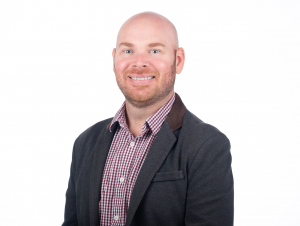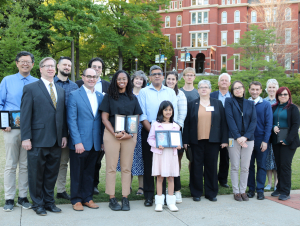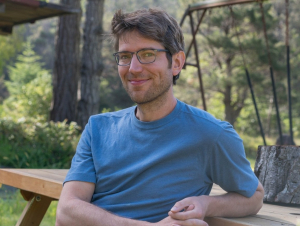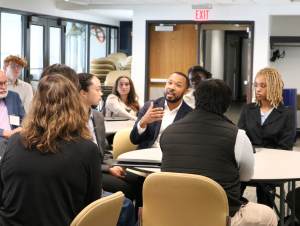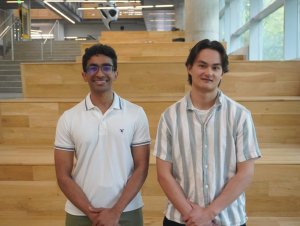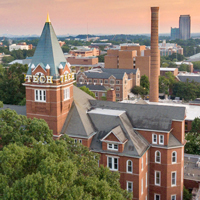Latest News
Georgia Tech's Explore Living Learning Community has a new faculty director dedicated to enhancing student engagement through innovative programming and leadership.
One of two Georgia Tech mathematicians to receive the prestigious award, Jaye’s research will center on the mathematics of the Fourier uncertainty principle.
The College of Sciences recognized outstanding faculty and staff for the 2024-25 academic year as well as recent retirees.
Will Ratcliff, a professor in the School of Biological Sciences, was named the first recipient of the John C. and Leslie C. Sutherland Professorship. This endowed faculty position recognizes his innovative research and dedication to education, which have made a significant impact on the scientific community and the Institute.
College of Sciences graduates deliver career insights at the Students and Alumni Leadership Dinner.
Chemistry major Matthew Rohan and biomedical engineering major Anirudh Sriram were awarded the prestigious Barry Goldwater Scholarship for exceptional academic achievements and dedication to STEM research.


